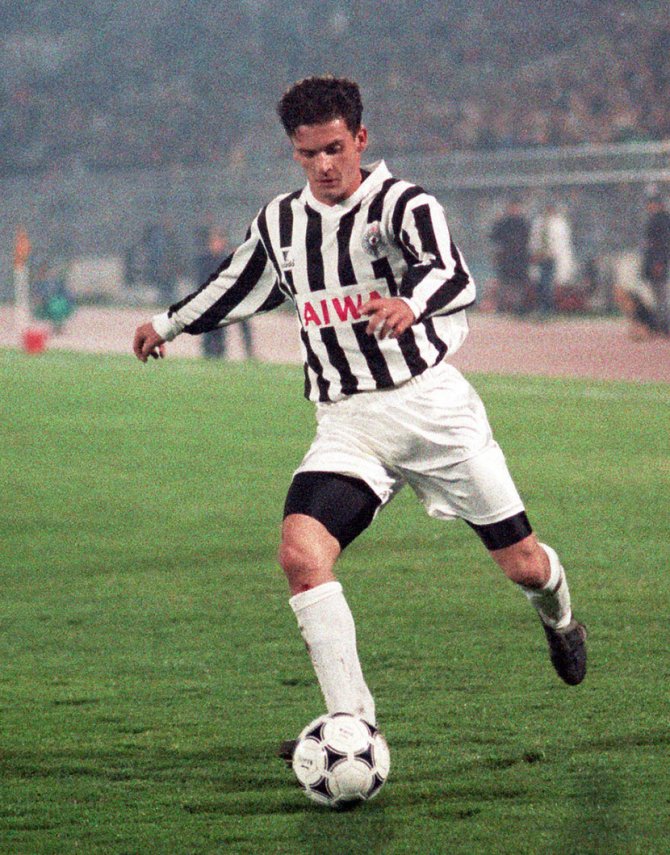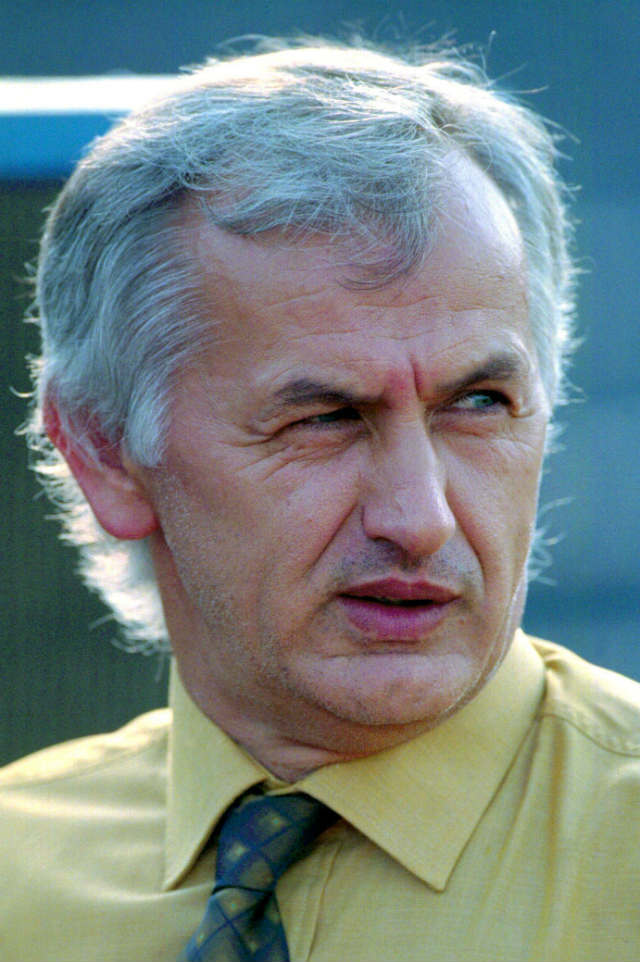 Throughout the long history of the United Nations there have been dozens of crucial resolutions which saved the life of millions, or at least suspended horrible conflicts that threatened to escalate into mindless slaughter. Whether such resolutions prohibited supplying arms or called for immediate peace negotiations, their primary goal was to give people hope, that tiny space for reconciliation, before picking up the pieces and moving forward. Yet one of them, Resolution 757 based on the war in the former Socialist Federal Republic of Yugoslavia and adopted on 30th May 1992, didn’t have the desired affect on Slobodan Milošević, Franjo Tuđman, Alija Izetbegović and their respective war cabinets.
Throughout the long history of the United Nations there have been dozens of crucial resolutions which saved the life of millions, or at least suspended horrible conflicts that threatened to escalate into mindless slaughter. Whether such resolutions prohibited supplying arms or called for immediate peace negotiations, their primary goal was to give people hope, that tiny space for reconciliation, before picking up the pieces and moving forward. Yet one of them, Resolution 757 based on the war in the former Socialist Federal Republic of Yugoslavia and adopted on 30th May 1992, didn’t have the desired affect on Slobodan Milošević, Franjo Tuđman, Alija Izetbegović and their respective war cabinets.
On the contrary, those leaders of Serbia, Croatia and Bosnia simply carried on their aggressive and regressive policies uninhibited, leaving sport in Serbia and Montenegro to bear the brunt of UN sanctions.
The punishment handed down was precise and delivered without the right of appeal:
(…) Decides that all States shall take the necessary steps to prevent the participation in sporting events on their territory of persons or groups representing the Federal Republic of Yugoslavia (Serbia and Montenegro).
Within 24 hours of the declaration coming into force the Yugoslav national football team was banned by UEFA from participating at the 1992 European Championship finals in Sweden and sent back to Belgrade on an aircraft that barely had enough fuel to complete the trip. Furthermore, Serbian and Montenegrin athletes weren’t allowed to compete in team sports under the FRY flag at the 1992 Summer Olympics in Barcelona and, most damning of all, its football clubs were expelled from all European club competitions indefinitely. But that was just the beginning, a punitive precursor to what was to become a frustrating, almost half decade-long nightmare of complete isolation from world sport.

You cannot imagine what it was like to disappear down a sporting black hole, nor feel the sense of grave injustice contemplating how on the earth Predrag Mijatović was responsible for the siege of Sarajevo or what Siniša Mihajlović had to do with battles in southern Croatia. Watching European championships and cups passing them by, ordinary Yugoslavs felt great resentment towards the international community and the notion that this kind of punishment would turn them against Milošević proved to be very wrong. Although the sporting sanctions were just one part of a package that included economic restrictions which brought awful poverty, the Serbian people particularly struggled with its role as a sporting misfit.
In order to somehow give fans a glimpse of a true football experience in such onerous circumstances, the Yugoslav football authorities came up with an unprecedented Frankenstein-like creation called the ‘TV Champions League’. The name was deceptive as it had absolutely nothing to do with the recently established UEFA competition; indeed it offered up little more than a disappointing tournament involving the best Yugoslav clubs at the time: Partizan, Red Star and Vojvodina.
‘TV CL’ soon became an inevitable part of everyday sporting life in Serbia and Montenegro. During every winter and summer break, those clubs would meet in a different city and play against each other in front of tens of thousands of fans with millions more watching on television. Believe it or not, this was by far the biggest and most interesting event involving Yugoslav teams during these years.
And finally in the fall of 1994 the UN Security Council decided to lift sporting sanctions for a trial period of 100 days. It was like a man who had been finally given a chance to compete in a 100-metre race, but had forgotten how to walk in the meantime. With the season already well underway, the only option for Yugoslav clubs lay in international friendlies. But who would dare to come to Belgrade via an airport locked down for more than two years to the capital of the state widely seen as the most culpable for the war? That brave decision was made by the Scottish club Dundee United who ventured into the unknown on the 15th November 1994.

Led by the former Partizan Belgrade manager Ivan Golac and with the young former Partizan defender Gordan Petrić in their line-up, the Scots became the first club from the west to play in Belgrade since Bayern Munich’s memorable 1991 visit for the Champions League semi-final tie with Red Star.
Around 40,000 fans were in attendance to see some serious international football with the holders of the Scottish Cup. The atmosphere was terrific and the occasion was further embellished with bouquets of flowers thrown into the stands by captains Goran Pandurović and Maurice Malpas. The national TV station RTS broadcasted the fixture and, maybe unintentionally, commentary was entrusted to the very same man (the late Jordan Ivanović, a true legend of Radio Belgrade) who commentated on the unforgettable 1989 Celtic vs Partizan tie when Golac was Partizan’s manager.

Everything surrounding the occasion seemed to have some historical hark back and that’s probably the reason why even I, a six-year-old boy at the time, decided to sacrifice my VHS recording of ‘Kickboxer’ and record 90 minutes of football over the top of it. Never mind Jean-Claude Van Damme, Dundee United was my new hero now.
In a one-sided game Partizan eased smoothly to a 3-0 victory thanks to stellar contributions from the likes of a young Savo Milošević, Veljko Paunović, Dragan Ćirić and an especially extravagant performance by Saša Ćurčić, a midfielder whose skills attracted the attention of several Premiership scouts and saw him end up at Bolton Wanderers a matter of months later. In the day following the match the Belgrade newspapers emphasised the competitiveness of our youngsters and lamented the sanctions which reduced their opportunities to demonstrate to a wider audience just what they could do.
Almost 23 years after that very special night in Belgrade Ivan Golac recalls for BTLM how he received a letter of warning from Jim Farry, the former president of Scottish Football Association.
“It was like yesterday. My secretary at Dundee United gave me the letter, and I remember that very sentence “The Scottish FA do not recommend going to Belgrade, since the situation over there is highly risky and dangerous“. I responded to him that we, Scottish Cup winners Dundee United, ought to spread moral dignity and humanity, and that we, people of Serbia, are a great football nation. United’s players, I continued, would experience magnificent hospitality in Belgrade and even feel safer than in Scotland”– explains Golac with a smile.
“When we finally reached the stadium, it was more than wonderful”, added Golac, emphasising the importance of one club from the UK being there to bear witness to the rebirth of Serbian/Yugoslavian football. “The fixture itself was good, Partizan had a strong, talented side and we were without five or six players who were called up for national duty. However, all the Dundee United players were thrilled and impressed by the fans, the atmosphere and everything surrounding the occasion. A few months earlier we’d won the Scottish Cup and, believe it or not, some of the guys later told me that memories from Belgrade are even more significant for them than the trophy” – concludes Golac.

Dundee United hosted a return game on the 20th December 1994 and Ćurčić scored the decisive goal in a 1-0 win. Two days later in southern Scotland, Dumfries club Queen of the South failed to offer up much of a challenge to their Belgrade visitors who cruised to a 4-0 win. Partizan’s three-game European ‘campaign’ ended without them conceding a goal and yet the 8-0 aggregate score was a mere footnote. With the help of the Scots, Partizan’s players were finally amnestied for the sins of the Serbian political leadership.
Conventional European club competition participation returned to Belgrade and Serbia permanently in the autumn of 1995, and although Dundee United and Partizan have yet to meet again, this short episode of humanity remains an unbreakable tie between the two clubs and proof of a rare superiority of sports over politics.



Was oblivious to the significence of these friendlies until reading this article. Attended the return game at Tannadice. Great reading how the legendary Ivan Golac stood up to the SFA dinosaurs.
I too was @ the Tannadice game & like Shug , I was unaware/ignorant of the true significance of the dbl header.
Golac truly is a remarkable man, I have fond memories of his dignified (if slightly left-field) traits towards football & humanity, something that Jim Farry could never hope to attain with his macavellian ways (I think it was Ernie Walker who brought that term to the Scots fitba masses, it may have been Hugh mcilvaney?).